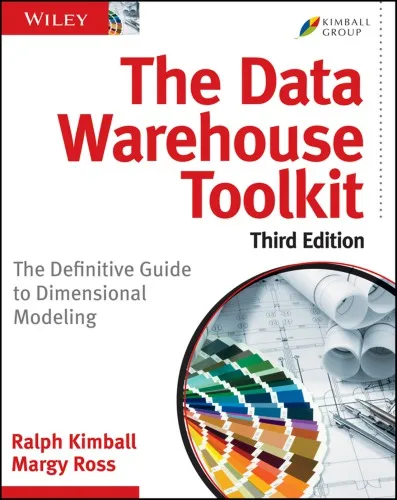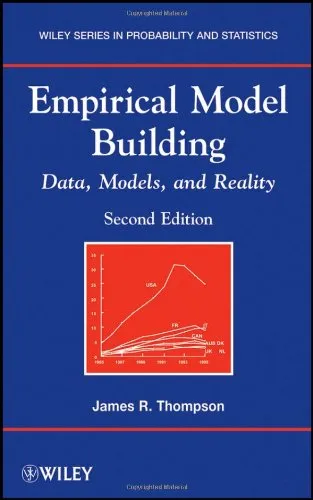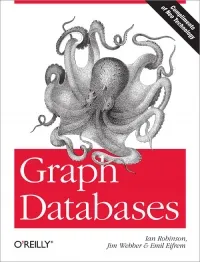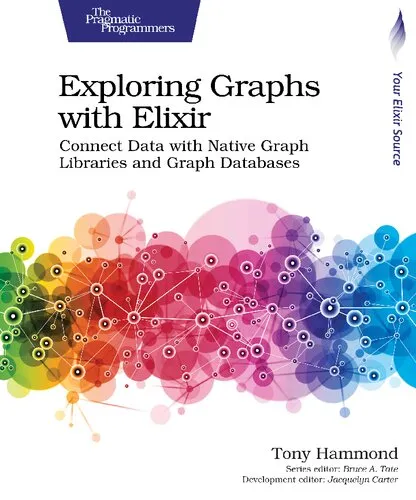The Data Model Resource Book, Vol. 1: A Library of Universal Data Models for All Enterprises
4.6
Reviews from our users

You Can Ask your questions from this book's AI after Login
Each download or ask from book AI costs 2 points. To earn more free points, please visit the Points Guide Page and complete some valuable actions.Related Refrences:
Introduction to "The Data Model Resource Book, Vol. 1: A Library of Universal Data Models for All Enterprises"
In today’s digital age, data is at the core of every successful organization. Whether you're working in finance, healthcare, retail, or technology, managing data effectively is critical for decision-making, operational efficiency, and strategic growth. The Data Model Resource Book, Vol. 1, authored by Len Silverston, offers a comprehensive guide to universal data models that can be applied across various industries, making it a go-to resource for data architects, business analysts, and developers.
The book provides practical examples, reusable templates, and insights that help reduce development time and ensure scalable, reliable, and consistent data architecture. Packed with almost two decades' worth of experience in data modeling, this volume is an invaluable resource for those who aim to standardize their data management strategies and improve their enterprise data systems.
Detailed Summary of the Book
At its core, The Data Model Resource Book, Vol. 1 is a collection of universal data models that can be utilized by any enterprise, from startups to large corporations. These models serve as a starting point for creating efficient and effective database designs while minimizing the risks of inconsistencies and redundancy. The book is divided into several key areas:
- Universal Data Models: These include logical data models for fundamental business functions, such as customer relationship management, human resources, product management, and financials. Each model is explained in detail, offering insights into how they can be adapted to meet specific organizational needs.
- Real-World Examples: The book features numerous case studies and examples, showcasing how these universal models have been implemented in actual business scenarios.
- Flexibility and Reusability: By offering robust templates, the book allows data architects to reuse foundational models, reducing development time and ensuring the scalability of data systems.
- Industry-Agnostic Frameworks: The models presented are not limited to specific domains but are designed to be adaptable to any industry, making them versatile and broadly applicable.
Key Takeaways
The book provides several important insights and practical approaches to data modeling:
- Time-Saving Templates: Pre-built models help reduce development time, enabling organizations to focus on customization rather than starting from scratch.
- Improved Data Quality: Consistent and well-designed data structures result in cleaner, more accurate data across systems.
- Scalability and Flexibility: The universal models ensure that databases can grow with the organization while remaining adaptable to new and emerging requirements.
- Cross-Industry Usability: Whether you're in retail, manufacturing, or technology, these models provide a strong foundation for effective data management.
- Comprehensive Guidance: The book doesn't just offer models but also explains the "why" and "how" behind them, making it educational for both novice and expert practitioners.
Famous Quotes from the Book
Here are some standout quotes that encapsulate the essence of the book:
“A consistent, well-defined, and universal data model is the cornerstone of effective data management in any enterprise.”
“Think of universal data models as the blueprint for a building. The better the blueprint, the more stable and versatile the structure.”
Why This Book Matters
The importance of The Data Model Resource Book, Vol. 1 cannot be overstated. Here’s why this book remains a key resource for data professionals:
- Bridging Theory and Practice: The book combines theoretical frameworks with practical applications, making it easier for readers to apply these concepts in the real world.
- Reusable Solutions: Developing data models from scratch can be labor-intensive and error-prone. The templates and guidance provided in this book help streamline the process, ensuring efficiency and accuracy.
- Universal Appeal: Regardless of the industry you work in, this book provides insights that are applicable across a wide range of business functions, including customer relationship management, inventory management, and financial reporting.
- Long-Term Value: As data continues to play an integral role in businesses, the principles and models described in this book remain timeless and relevant.
Whether you're a seasoned data modeler or new to the field, this book provides the foundation required to build robust, adaptable, and scalable data systems. It’s an indispensable resource that equips professionals with the tools they need to succeed in today's data-driven environment.
Free Direct Download
You Can Download this book after Login
Accessing books through legal platforms and public libraries not only supports the rights of authors and publishers but also contributes to the sustainability of reading culture. Before downloading, please take a moment to consider these options.
Find this book on other platforms:
WorldCat helps you find books in libraries worldwide.
See ratings, reviews, and discussions on Goodreads.
Find and buy rare or used books on AbeBooks.
1559
بازدید4.6
امتیاز50
نظر98%
رضایتReviews:
4.6
Based on 0 users review
"کیفیت چاپ عالی بود، خیلی راضیام"
Questions & Answers
Ask questions about this book or help others by answering
No questions yet. Be the first to ask!















